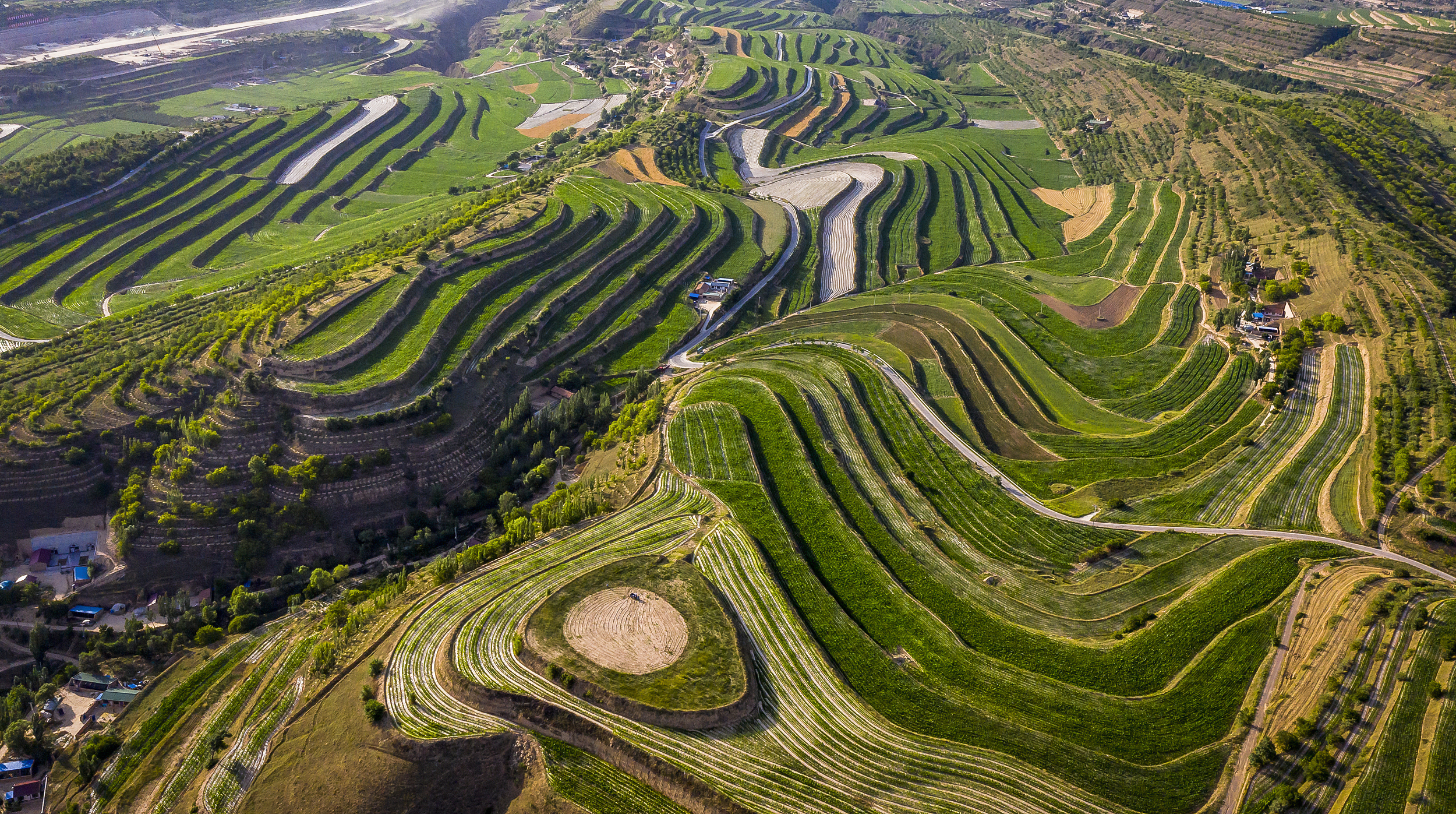
An aerial view of the terraced field in Pengyang county of Guyuan city, Ningxia Hui Autonomous Region. (PHOTO: VCG)
By FU Xiaobo & CHEN Chunyou
Farmers in Jingyuan county, Ningxia Hui Autonomous Region (Ningxia) in northwest China, not only earn their income by planting crops, but have also begun to generate additional income from the carbon sink transaction, while contributing to environmental protection. So, what is behind these desired outcomes?
In 2022, Huang Qian, vice general manager of the Xiamen Property Rights Trading Center and temporary deputy director of the Tong'an Bureau of Agriculture and Rural Affairs in Fujian province in southeast China, went to Jingyuan for the first time, only to find that organic manure was being used extensively to increase soil organic matter. By replacing chemical fertilizers, organic manure not only improves the quality of land, but also contributes to reducing carbon emissions.
Recognizing the potential for calculating soil carbon emissions reduction, Huang subsequently led a team of experts to conduct many field visits to Xinmin town in Jingyuan to carry out the calculations. The local government officials and farmers from Tong'an and Jingyuan supported this idea and offered their help during this process.
This August, the first agricultural carbon sink deal was reached under a cooperative mechanism between the two regions. Xiamen's enterprises and individuals purchased about 19,700 tons of high-standard farmland carbon emission reduction from Xinmin's two villages, Nanzhuang and Mahetan, via the Xiamen Property Rights Trading Center. This allows them to offset the carbon emissions generated in daily production and life.
The trading center, operational in May 2022, serves as an agricultural carbon sink trading platform. It provides one-stop services such as measurement, trading and registration of agricultural carbon sinks, and promotes the conversion of agricultural production into carbon trading products.
"I have worked on the farmland for many generations. I never expected that the land could generate income through carbon sink trading. The income of our village has doubled, thanks to the cooperation with Xiamen's Tong'an district," said Yun Guangyuan, party secretary of the Nanzhuang village, adding that, "The village has sold about 8,600 tons of agricultural carbon sink, allowing villagers to receive considerable dividends from the deal."
The country's first batch of agricultural carbon sink trading originated in Tong'an in 2022. This time, the transaction in Jingyuan also drew upon the agricultural carbon sink trading experience of Tong'an, aiming to help local farmers increase their income. This has created a new cooperation model between Fujian and Ningxia, said an official from the people's government of Tong'an district.
The trio will conduct a series of experiments in fields such as life science, fluid physics, combustion science and materials science. Notably, this is the first time that fruit flies have been taken on a Chinese space mission as experimental subjects. What made scientists choose fruit flies? What experiment will they undergo?
